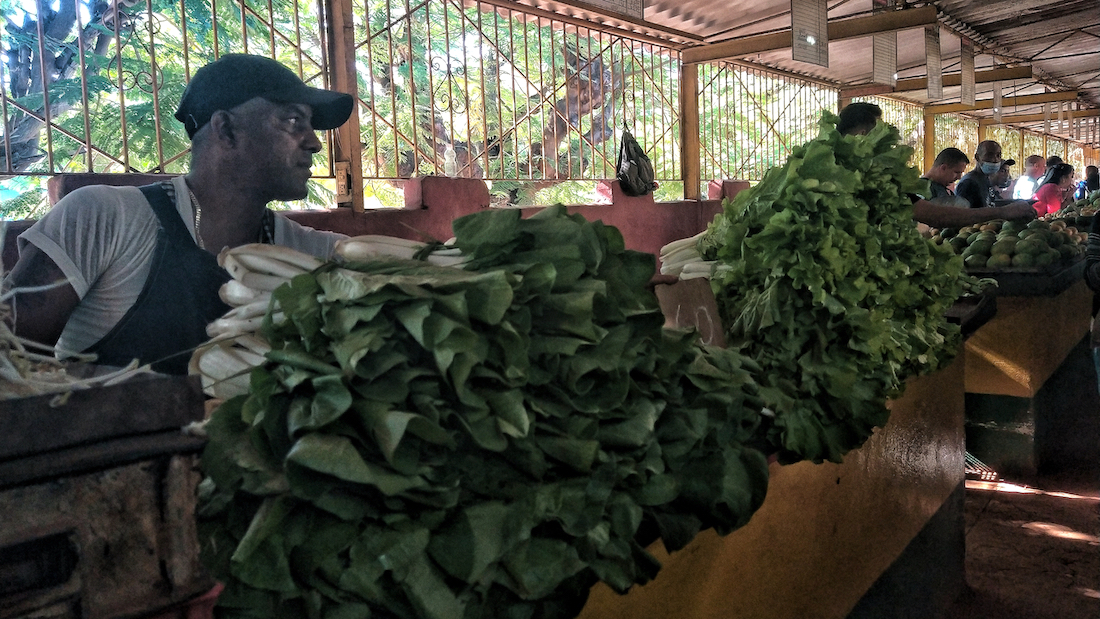In July Minister Gil reported a 1.8% expansion of the economy in 2022 and then noted —perhaps because even he did not believe what he was saying— that "every time we talk about growth we have to take into account that we started from a previous period in which we were almost at a standstill." But, will anyone really believe that the Cuba of 2022 was better than that of 2021? Where is that growth?
The official, to the astonishment of those familiar with these issues, mentioned tourism, transport, communications and the social sectors of education, culture and sports among "the fastest-growing activities."
This is surprising because, just a few days before, the Minister of Transport stated that the main facilities all across the country had been "functioning practically without spare parts for the last three years," such that technical availability had been "below 50%," leading to "the levels of import and export cargo at the ports dropping by more than 44%." Thus, this was a scenario that by no means evidences growth.
Tourism did grow compared to 2021, but Gil himself qualified this, explaining that to date it had received an amount that was "only 51.1% of that registered in the same stage in 2019." Such data places Cuba as the only country in the world that, having tourism among its main industries, has not yet recovered its level of pre-pandemic activity; not even close, only getting halfway there. Calling that "growth" is a bit audacious.
The other thing that grew, according to Minister Gil, was communications. Again, he himself cast doubt on this, explaining that the sector "saw a downard trend in the collection of foreign currency from abroad, given the increase in sales in CUP. This is good for the population, but affects external collection." So, business was up, but lost money?
The other sectors of supposed growth are education, culture and sports, something that, once again, clashes with a fact that the minister himself cited in his speech: social activities were down 4.9%.
This contradiction is easy to see even without the numbers. Education, culture? Alejandro Gil just might have a young nephew, for example, being educated by a teacher who barely knows how to read and write. Is he not aware of the deplorable state of Cuba's schools and their faculties? And sports... in this sector, the only thing that is up is the number of desertions by athletes as soon as they get off the plane.
While the alleged growth in those sectors is dubious, no doubt surrounds "the large drops in primary activities linked to production, such as agriculture, livestock and forestry, manufacturing, commerce and electricity." Specifically, "primary activities had negative values of -34.9%; and secondary activities, of -20%".
Such a deterioration of basic activities —light industry, energy, agriculture— constituting the beginning of productive chains, makes a relatively fast recovery very difficult, and points to the exhaustion of a model that, like a cancer, began by destroying the periphery, but has already reached the very marrow of Cuba's society and economy.
If a Japanese minister were to announce such data, he would immediately commit seppuku (ritual suicide) out of the enormous shame of his absolute failure. Gil, in contrast, did not even blush when describing the hell in which Cubans are mired after thousands of ill-conceived economic measures and countless failed plans and counterplans.
Gil, Díaz-Canel, Tapia (let us recall the Government’s plan for people to supply themselves with their own fish by breeding tilapia) and the whole gang that Raúl Castro has running his estate, blame the disaster on the "blockade," the international crisis, Russia's "special military operation" (God forbid it be called an invasion), Covid-19, and even the influence of Jupiter on Capricorn. The entire universe is to blame, including ordinary Cubans... but not them.
Even so, it is striking that in these National Assembly sessions no credible, or even outlandish, strategy was proposed to tackle this situation, which the Government itself must know is dangerous. The meeting produced bad news, silly proposals like counting palm trees, and family-run aquaculture operations; and superficial "criticisms," like the fact cheese cannot be purchased...but in terms of economic policy they only referred to a new price control law that, like the previous ones, will do more harm than good.
Could it be that they did not propose anything because they already gave up, and will soon hand over the Government? Or could it be that they did not propose anything because the only option now is a kind of mafia capitalism under which they will share the country with Russians and Chinese in exchange for their protection and support? The answer seems obvious.
